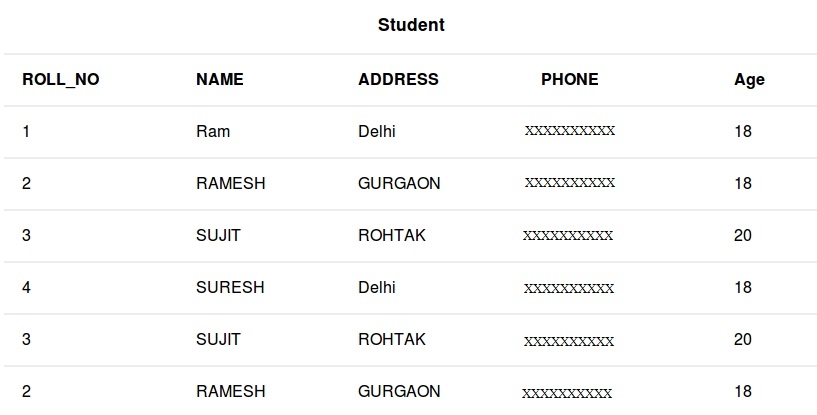
Stort utbud ekologisk och naturlig hälsokost - för en bättre vardag. Count() function and select with distinct on multiple columns. You can use count() function in a select statement with distinct on multiple columns to count the distinct rows. How do you select multiple columns from a table while ensuring that one specific column doesnt contain duplicate values? I cannot get the distinct values of just one column using.
Is it possible to select all distinct values within the data in the. FROM AddressTable) AS Sub. Gathers the result with two columns where name and dept are merged together in a single column. I need to query an SQL database to find all distinct values of one column and I need an arbitrary value from another column.
DISTINCT can be used with aggregates: COUNT, AVG, MAX, etc. Please refer to this post for more detail. Perhaps you have multiple rows for an ID and want to show only one row for that I but want to show multiple columns ? Well, you can do that in SQL , but you can’t do it with DISTINCT.
The above query returns the distinct rows having the distinct combination of city,state,country. But i just want the distinct city, distinct state, distinct country that is i want the distinctness in columns in single sql query without the usuage of union all keyword in that. We can count during aggregation using GROUP BY to make distinct when needed after the select statement to show the data with counts. Remember that you must include. The primary key ensures that the table has no duplicate rows.
However, when you use the SELECT statement to query a portion of the columns in a table, you may get duplicates. Thanks in advance for your assistance! SQL - Multiple tables, multiple columns, one distinct.
Select distinct on multiple columns. The ultimate goal is to select all three columns in both tables but return only. There are multiple ways. SQL distinct is used to avoide Redundancy.
Redundancy is the repetition of certain data in a table which can be avoided with SQL select distinct clause. What happens when we use it with multiple columns and should we ever do this? I do need the other two columns because they are used in Calculated fields. I want to select ColumnA, ColumnB, ColumnC. Gnanesekhar select distinct (claimNumber, versionnumber) from claims this is the exact syntax I asked whether it will work.

I dont think it works even with CTE right. Did u try with dummy data. I tried seems its not working. Is there any reason that sql doesnt support a distinct on columns.
Комментариев нет:
Отправить комментарий